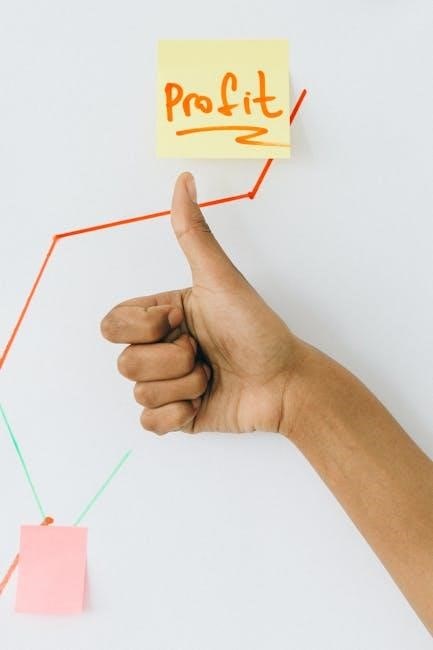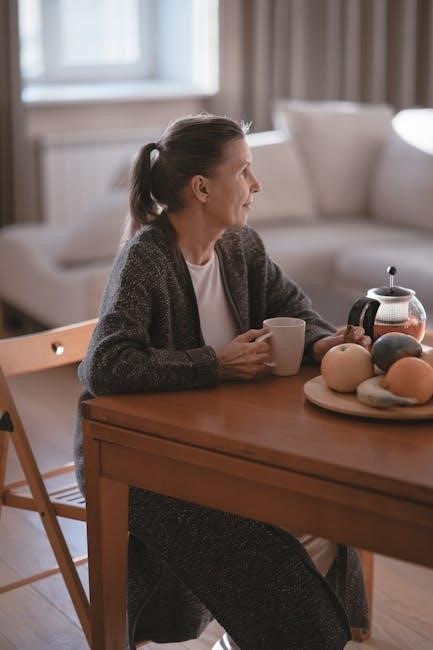Crossword puzzles are engaging word games that challenge the mind and entertain. They involve filling a grid with words that match given clues, enhancing vocabulary and cognitive skills. These puzzles are popular worldwide, offering mental stimulation for all ages. Regularly solving crosswords can improve memory, focus, and critical thinking, making them a valuable educational tool.
1.1 Definition and Purpose
Crossword puzzles are structured word games where players fill a grid with words that match given clues. The purpose of crosswords is to challenge the mind, enhance vocabulary, and provide entertainment. They typically consist of a square or rectangular grid with black and white squares, where the white squares are filled with letters to form words. The clues, often categorized as “across” or “down,” guide the solver in identifying the correct words. Crosswords serve both recreational and educational purposes, offering mental stimulation and cognitive benefits. They are widely used as tools for learning, entertainment, and even in therapy to improve memory and focus. Their universal appeal makes them a beloved activity across generations.
1.2 Popularity in Modern Entertainment
Crossword puzzles remain a beloved form of entertainment in modern times, appealing to a wide audience. Their presence in newspapers, magazines, and online platforms ensures accessibility and convenience. Many enthusiasts enjoy solving crosswords as a daily ritual, finding it both relaxing and intellectually stimulating. The rise of digital crosswords has further boosted their popularity, allowing players to engage in puzzles anytime, anywhere. Crosswords are also shared widely on social media and apps, creating a sense of community among solvers. Their universal appeal lies in their ability to challenge the mind while providing a sense of achievement. This timeless activity continues to captivate people of all ages, making it a staple in modern entertainment.
1.3 Cognitive Benefits for All Ages
Crossword puzzles provide mental stimulation that benefits individuals of all ages. Solving crosswords enhances memory, vocabulary, and problem-solving skills. For adults, regular engagement can reduce cognitive decline and improve mental clarity. Children benefit by developing critical thinking and language skills. The structured nature of crosswords encourages focus and concentration, fostering a sharper mind. Additionally, the sense of accomplishment upon completing a puzzle boosts confidence and motivation. These cognitive benefits make crosswords a valuable activity for maintaining mental health and intellectual growth across all age groups. Engaging in crosswords is a fun and rewarding way to keep the brain active and sharp, promoting lifelong learning and mental well-being.

Understanding the “Tutorial Website” Clue
The “tutorial website” crossword clue is a short yet clever puzzle. It typically seeks a concise answer, often 4 letters, referring to a well-known site like EHOW.

2.1 Analyzing the Clue Structure
The “tutorial website” crossword clue is a concise and cleverly crafted puzzle. Typically, such clues are brief, requiring solvers to think creatively. The clue often hints at a well-known site, like “EHOW,” a popular platform for tutorials. Crossword clues frequently use wordplay, such as synonyms or anagrams, to lead solvers to the answer. For example, “tutorial website” might be phrased to emphasize the site’s educational purpose or its digital nature. The structure of the clue is designed to challenge the solver’s vocabulary and problem-solving skills, making it both engaging and mentally stimulating. By analyzing the clue’s wording and potential patterns, solvers can more effectively narrow down the correct answer.
2.2 Historical Context in Crosswords
Crossword puzzles have a rich history, dating back to the late 19th century. The first crosswords were simple word squares but evolved into more complex grids. The “tutorial website” clue reflects modern themes, showing how crosswords adapt to current culture. Historically, clues often focused on literature, history, or general knowledge, but today, they incorporate technology and digital terms. This shift mirrors the evolution of society, making crosswords relevant across generations. The inclusion of terms like “tutorial website” highlights the growing influence of the internet and online learning. Crosswords continue to blend tradition with contemporary topics, ensuring their enduring appeal. This historical adaptability keeps crosswords fresh and engaging for new solvers while remaining a cherished pastime for long-time enthusiasts.

Benefits of Solving Crossword Puzzles
Solving crosswords enhances cognitive function, improves memory, and boosts problem-solving skills. It reduces stress and improves focus, making it a mentally stimulating and enjoyable activity for all ages.
3.1 Enhancing Cognitive Function
Crossword puzzles act as a mental workout, challenging the brain and promoting cognitive sharpness. Regularly solving crosswords improves memory, enhances vocabulary, and strengthens neural connections. This mental exercise boosts problem-solving abilities and concentration. It stimulates the brain’s language centers, fostering better understanding and recall of words. Crosswords also delay cognitive decline, making them especially beneficial for older adults. The process of deciphering clues sharpens critical thinking and logical reasoning. Over time, this mental stimulation can lead to improved overall brain health and a reduced risk of age-related cognitive issues. Engaging in crosswords is a fun and effective way to keep the mind active and resilient at any age.
3.2 Reducing Stress and Improving Focus
Crossword puzzles offer a calming escape from daily stress, providing a mental distraction that promotes relaxation. The structured nature of crosswords requires focus, helping to train the brain to concentrate and ignore distractions. Solving clues gives a sense of accomplishment, boosting mood and reducing anxiety. The repetitive, methodical process of filling in answers can be meditative, lowering stress levels. Regularly engaging in crosswords enhances focus by improving attention span and mental clarity. This activity also fosters patience and persistence, which are valuable for managing stress. By combining mental stimulation with a sense of achievement, crosswords create a balanced and rewarding experience that supports emotional well-being and cognitive health.
How to Approach Crossword Clues
Approaching crossword clues requires a strategic mix of vocabulary, logic, and pattern recognition. Start by analyzing clue wordplay, such as puns or anagrams, to decipher meanings. Breaking down clues into smaller parts and using known word fragments can help unlock answers. Cross-referencing intersecting letters in the grid is essential for verifying solutions. Utilizing online solvers or dictionaries can provide additional insights, especially for tricky clues. Consistent practice enhances both speed and accuracy, making crossword solving a rewarding and enjoyable challenge.
4.1 Effective Solving Strategies
To effectively solve crossword clues like “Tutorial website,” start by breaking down the clue into its components. Identify keywords such as “tutorial” and “website” to narrow down possible answers. Consider common abbreviations or shorter terms that fit the given length, which in this case is 4 letters. Think of well-known websites that provide tutorials, such as eHow, which is a popular platform offering instructional guides. Cross-check the letters with intersecting clues in the grid to verify the solution. Utilizing online resources or crossword solvers can also provide insights and confirm the answer. This strategic approach ensures accuracy and efficiency in solving crossword puzzles.
4.2 Utilizing Tools and Resources
To solve crossword clues efficiently, leveraging tools and resources is essential. Online crossword solvers, such as Crossword Solver or Crossword Nexus, allow users to input clues and letter counts for quick answers. For example, entering “Tutorial website” with a 4-letter filter yields “EHOW,” a known tutorial site. Mobile apps like Crossword Buddy provide on-the-go assistance, while browser extensions offer instant solutions. Additionally, crossword communities and forums share insights and strategies. Many websites, such as NY Times or USA Today, offer archives and hints for specific puzzles. These tools not only accelerate solving but also enhance learning by revealing patterns and common answers, making crosswords more accessible and enjoyable for solvers of all levels.

The Solution to “Tutorial Website”
The answer to the crossword clue “Tutorial website” is EHOW, a well-known site offering step-by-step guides and tutorials on various topics, making it a fitting solution.

5.1 Explanation of the Answer
The crossword clue “Tutorial website” refers to a platform that provides instructional content. The answer is EHOW, a well-known website offering step-by-step guides. EHOW is recognized for its tutorials on various subjects, making it a fitting solution for the clue. This 4-letter word matches the crossword’s structure and is commonly associated with educational resources. The site’s popularity and relevance to tutorials align perfectly with the clue, ensuring a logical and accurate answer for solvers. This explanation highlights why EHOW is the ideal fit for the “Tutorial website” crossword clue.
5.2 Related Clues and Variations
Crossword clues often have variations, and “Tutorial website” is no exception. Related clues include “Tech tutorials site,” “Website with step-by-step tutorials,” or “Site with tutorials.” These variations often point to the same answer, EHOW, but may use different phrasing. For example, “How-to site” or “Guide platform” could also lead to the same solution. Sometimes, crosswords may refer to other tutorial sites like YouTube or Udemy, but these are less common. These variations keep the puzzles fresh and challenging, ensuring solvers stay engaged by recognizing different clue patterns. They also highlight the versatility of the answer, making it a popular choice for crossword creators.

Creating Your Own Crossword Puzzle

Designing a crossword involves selecting a theme, choosing relevant words, and arranging them in a grid. Ensure symmetry, balance, and fun, with clear clues for solvers.
6.1 Steps to Design a Puzzle
Creating a crossword puzzle begins with brainstorming a theme, such as a “tutorial website” crossword. Start by listing relevant words, like “EHOW,” and their clues. Next, sketch a grid, ensuring symmetry and balance. Fill in the words, alternating between horizontal and vertical placements. Write clear, concise clues for each answer, making sure they are solvable. Test the puzzle for difficulty and fun, adjusting as needed. Finally, review the grid for errors and ensure all clues are accurate. This structured approach ensures an engaging and educational puzzle for solvers of all skill levels.
6.2 Recommended Tools and Software
Designing a crossword puzzle can be streamlined with the right tools. Crossword Forge and Armored Penguin Crosswords are popular software options for creating custom puzzles. Crossword Hobbyist is another user-friendly tool, ideal for beginners, offering templates and word lists. For educators, tools like Crossword Compiler allow creating puzzles tailored to specific lessons. Online platforms like Crossword Labs provide web-based solutions for quick puzzle creation. These tools often include features like automatic word placement, clue generation, and grid customization. They simplify the process, making it easier to craft engaging and educational crosswords, such as one centered around a “tutorial website” theme.

Educational Value of Crosswords
Crossword puzzles enhance learning by expanding vocabulary and fostering critical thinking. They engage students in an interactive way, making complex concepts more accessible and enjoyable to grasp.
7.1 Expanding Vocabulary

Crossword puzzles are an excellent tool for expanding vocabulary. By encountering new words in clues and grid patterns, solvers are encouraged to explore meanings and contexts.
- Clues often introduce less common words, prompting learners to research and understand their definitions.
- This interactive process makes vocabulary acquisition engaging and effective.
- Regular solving fosters familiarity with a wide range of terms, enhancing language proficiency.
Such exposure is particularly beneficial for language learners, providing practical insights into word usage and pronunciation.
7.2 Enhancing Critical Thinking Skills
Crossword puzzles are a powerful tool for enhancing critical thinking skills, as they require solvers to analyze clues, make logical connections, and solve problems methodically.
- Solvers must interpret ambiguous clues, think creatively, and often consider multiple possibilities before finding the correct answer.
- This process sharpens analytical abilities, fostering a mindset that values precision and attention to detail.
- Regular engagement with crosswords trains the brain to approach challenges systematically, a skill that translates to academic and professional environments.
By challenging the mind to think critically, crosswords become more than a hobby—they are a valuable cognitive exercise with lasting benefits.
